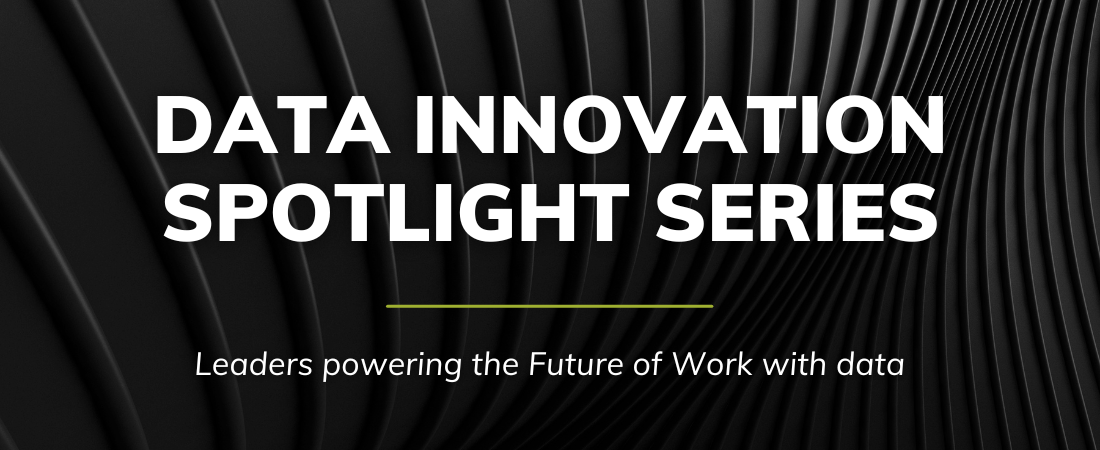**A recurring series to spotlight the leaders who are shaping the Future of Work through the lens of data. Today’s profile features Alan Kennedy, a global IT leader within the medical/aesthetic space who is passionate about delivering meaningful outcomes through digital transformation.**
Alan, it’s such a joy to be sitting down with you! Our worlds serendipitously collided through the Massachusetts Institute of Technology (MIT) executive digital innovation program where we found ourselves as classmates. It makes today’s conversation extra fun for me, as we have shared passion for all things futurism, data, and digital acceleration. To begin, I’d love for you to share a bit about your career journey into IT. How did you get into tech? What’s your WHY?

Alan Kennedy: Great question, so I wasn’t born into IT; I actually started in engineering, then went into quality systems, and then new product development for a while. But the common theme across it all was technology. No matter what the role, I found my primary purpose for me and my teams was to bring technology into the fold with data and to make things better and deliver on value. And that theme has stayed with me.
About a decade ago, I got my first introduction to IT leadership through Covidien, and when I got there and saw the kinds of discussions leadership teams were having around things like products, services, customer experience, and so on, they were very technology centric. All of a sudden, the light bulb went off and I thought, if I have the technology, and the data to support the technology, I can add value to this table, and that’s what I’ve strived to do over the last 10 years, to different degrees, at different places, and in different ways. To bring data and technology into the fold and make it meaningful so it can be aimed to make things better over time.
It can be hard enough to get the seat at the table but then, once there, the challenge often shifts to how to maintain and drive influence. I’m curious as you reflect on your career in IT, what has been perhaps the most meaningful evolution in this space that you’re most excited by?
AK: If we go back and think about data holistically, it wasn’t that long ago that we were just looking at transactional data — are orders coming in, was revenue on target, how are our costs, looking at complaints, etc. We were always looking back, but that was meaningful at the time. Then we moved on a bit and started looking at the metadata and trends within that and saying, “We can predict this going forward. We can see what happens in the past, look for those trends, and with a certain amount of reliability determine what’s going to happen in the future.” And that shifted us into the predictive era.
But we also had qualitative data out there — customer surveys, product reviews, etc. — and we then had to figure out how to bring that into the fold. And before we could crack that nut, the next things exploded like Internet of Things (IoT). For so long, each channel has been moving forward independently rather than together from a data perspective but now, with the onslaught of AI and large language models, we actually have the capabilities to bring it all together and make meaningful changes in a huge way.
No doubt that it’s an extraordinarily exciting time, but also a time that can be quite overwhelming. What advice would you give to leaders as they navigate what these changes and advancements mean for their world?
AK: I’ll go back to what MIT told us a couple of weeks ago. You have to take the facts from the fiction. Go slow and understand what it is you want to achieve. If you understand what outcome you’re chasing and why you’re chasing it, now data, AI, and language models can be used as tools to help you accelerate getting to that outcome. In addition, decide where you need to pay attention and the areas that you can ignore as you chase that goal.
Great advice! So shifting a bit back to your world, I’d love to know the role that data plays in your day-to-day of IT leadership.
AK: Depends on the day we are in! A big focus in our world right now is analytical forecasting. We’re always looking how much did we sell, how much do we need to sell, and therefore, how much do we need to order and have in our supply chains because we all know supply chains are quite complex these days. So having that data and having a machine like AI and a large language model to be able to sit over your forecasting and interact with you is hugely valuable. We have the forecasting and the analytics in place, and we’re starting to dip our toe in that world to see what value that could bring.
Another example is in looking at new business models. We sell large capital equipment and it’s pretty expensive to fund and sometimes with high interest rates it’s not that easy for our customers to access. So, to reduce that barrier to entry, we are looking at real-time data from the machines so that as customers treat their patients, we can evaluate the data and give the business team more flexibility on business models.
And while we are early in this, we are also starting to dip our toe in IoT. We place our capital equipment in the field and are now getting real-time data back from those machines — things like whether a machine is going to fail ahead of time. What that does is reduce the likelihood of adverse events which is really good for patients, not to mention the ability it gives the customer for more uptime.
To me, these are the types of things that data can do for you and that’s how you materialize it into value. When I think of the role CIOs can play in spearheading data initiatives, to me it comes to down to how to bring these capabilities and this flexibility to the businesses they serve.
These are great examples and when I think of the notion of championing data initiatives it makes me wonder… what advice would you give to leaders who want to jump-start or advance their data leadership journey, no matter their title or function.
AK: I think of data like blood in the human body because I’m in the med tech industry most of what I do is aimed at the human body. The data comes in and out and you don’t want it leaking, you don’t want it dirty, you don’t want to contaminate it, and you really want to keep it healthy to keep the rest of the body healthy.
When you think of it that way, now you can look at whatever area you’re in and apply it to you, which is often half of the battle. Internalize it, but then use it. Data surfaces insights. And insights create actions, and that’s how a business runs and makes decisions. For anyone who has access to data, if you can just do that in your area for your data set, you’re winning.
Then, the next piece is to educate. Bring people along because they’re probably overwhelmed about data just like you are. Give them the same analogy. Show them in tangible terms how data can be used to make decisions or inform decisions. And then guide it and make sure data stays on the right track to do the right things in the right way.
Ok final question… when you think of the term “data innovation” what does it conjure up for you?
AK: To me, data innovation is about accelerating business transformation and in turn, accelerating what we can offer to our customers and patients. It’s about bringing better things with a higher quality of impact to customers and patients quicker than we’ve seen in the past. In the healthcare space, we’ve seen a lot of very fast movement and with huge improvements. It’s humbling and exciting to be in this space at this time.
**Know someone who is championing data innovation efforts? Interested in being profiled for our spotlight series? Click here to throw your hat in the ring, or to nominate a peer.**

